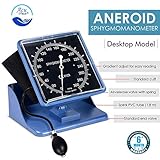Nutrition In Adults: How The Adult Body Can Benefit From A Balanced Diet And Supplements
Nutrition in adulthood is more important than you think. Here is how a balanced diet, fortified with targeted supplements, can support health in the long term.

Supplement The Daily Nutrition In Adults: Benefits Of A Balanced Diet And Supplements
“You are what you eat.” This well-known quote by 19th-century French gastronome Anthelme Brillat-Savarin may be centuries old, but its relevance has only grown with time, especially for adults navigating the whirlwind of modern life. Between long work hours, urban commutes, social commitments, and family responsibilities, balanced nutrition often takes a backseat. Quick meals and convenience foods have become an urban norm, and the long-term health consequences of neglecting proper nutrition are quietly beginning to reflect in senior adults.
Why Should Adults Focus On Nutrition?
While we often associate nutrition with growing children or the elderly, however, the adult years, particularly between ages 25 and 45 are equally important. During these years, your body's metabolic efficiency begins to shift, nutritional absorption may decline, and lifestyle diseases start to creep in.
From maintaining muscle strength and bone density to supporting cognitive function and hormonal balance, most experts agree that a steady recommended intake of macronutrients (carbohydrates, proteins, and fats) and micronutrients (vitamins and minerals) is important to live a high functioning life. However, the reality in our country presents a worrying picture.
According to an All Indian Institute of Medical Sciences research, Vitamin D deficiency affects 40% to 99% of Indians, despite the country being bathed in sunlight year-round. Factors such as indoor lifestyles, pollution, and sunscreen usage reduce the body's ability to synthesise this vital nutrient, essential for calcium absorption and bone health. Left unchecked, such deficiencies can increase the risk of osteoporosis and fractures as early as one's 40s.
Impact Of Nutrient Gaps
Calcium and Vitamin D aren't the only concerns. Iron deficiency and anaemia, particularly in women, are rampant across the globe and contribute to fatigue, poor concentration, and lower immunity. Vitamin B12 and folate are considered critical for brain function and red blood cell production, their deficiencies can cause fatigue, nerve issues, and even depression. Omega-3 fatty acids, essential for heart and brain health, are also commonly absent in popular Indian diets, which lean heavily toward vegetarianism.
Despite the array of food choices available today, dietary fibre intake is insufficient in many adult diets, leading to gut issues, constipation, and poor digestion, all of which contribute to chronic health conditions over time. This results in a steady rise of lifestyle disorders such as heart-related disease, diabetes, obesity, chronic fatigue and more.
Supplement The Daily Nutrition In Adults
Supplement The Daily Nutrition In Adults: Benefits Of A Balanced Diet And Supplements
Photo Credit: Amazon
While a balanced diet rich in vegetables, fruits, lean protein, whole grains, and healthy fats remains the foundation of good health, it isn't always enough. Busy schedules, irregular eating habits, dietary restrictions (like vegetarianism), and environmental factors can create gaps even in well-intentioned meal plans.
This is where nutritional supplements can come into play.
Supplements, when used mindfully and under proper guidance, bridge the gap between dietary intake and nutritional needs. For instance, Shelcal, a trusted name in adult nutritional care, offers targeted formulations for daily nutrition, supporting bone health and muscle function, amongst others. The Shelcal Total offers an extra dose of nutrition every day for men and women in two delectable flavours (vanilla and dark chocolate). The no-added-sugar formulation is said to be powered by protein, multi-vitamins, multi-minerals and prebiotics that support bone and muscle health, increase energy, boost immunity, and improve gut and skin health.
While supplements like Shelcal Total can offer targeted nutritional support, they are meant to complement, not replace, a well-rounded diet. Whole foods such as dairy, meat, leafy greens, legumes, fruits, and fortified cereals should continue to be the primary source of essential nutrients for all human beings. When used thoughtfully and under medical guidance, supplements serve as a helpful bridge to fill dietary gaps, ensuring that every individual gets the nutritional support they need to thrive in the modern world.
Frequently Asked Questions (FAQs)
1. Why is nutrition important for adults?
Adult bodies have different nutritional needs compared to children or adolescents. Proper nutrition is considered essential for maintaining energy levels, supporting organ function, keeping bones strong, managing weight, and reducing the risk of chronic diseases.
2. What are some common nutritional deficiencies seen in adults in India?
Common deficiencies in adults can include Vitamin D, Vitamin B12, Iron, Calcium, and Fibre. These can be influenced by dietary habits, lifestyle, and individual health conditions.
3. How can I ensure I'm getting a balanced diet with a busy schedule?
Planning meals, incorporating a variety of food groups (cereals, pulses, vegetables, fruits, dairy/alternatives, and healthy fats), and eating home-cooked meals where possible can help ensure a more balanced intake even with a busy schedule.
4. Do adults need nutritional supplements?
While a balanced diet should always be the primary source of nutrients, supplements can be helpful in bridging nutritional gaps that may arise due to dietary restrictions, lifestyle factors, or specific health conditions. It's always best to consult a healthcare professional to understand if supplementation is necessary for you.
5. Can good nutrition help manage common health issues in adulthood?
Maintaining good nutrition helps in preventing and managing many common health issues such as diabetes, heart disease, obesity, and osteoporosis. It supports overall bodily functions and enhances the body's ability to heal and stay healthy.
Prioritising adult nutrition is a vital investment towards building resilience against illness, promoting healthy ageing, and ensuring we have the energy and vitality to pursue our aspirations and contribute meaningfully to our families and communities. While a balanced diet should always be the primary focus, understanding our nutritional status and considering how to effectively meet our needs, potentially with the support of reliable nutritional supplements from providers like Shelcal when appropriate, is a crucial step towards building a healthier future for all.
Sources: Iron Deficiency in Women [Read Here] and Vitamin B12 Deficiency [Read Here]



























